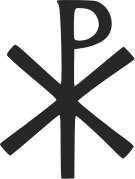Don't bother...you don't need to, and neither does God Pill....Henry Ford was accused of being ignorant by a Chicago News paper...he took them to court. In an effort to prove he was ignorant, the newspaper's lawyer made a great effort to prove things Henry Ford did not know. Finally Henry Ford said, "I don't need to fill my mind with information I do not know, when I can summon any number of people to my aide, who know the answers to the things I don't know". The point....is knowing what you need to know the answers to, and then getting those answers. It doesn't mean you have to be the one with the answers, especially if you know how to get the answers!
When it comes to the trinity, God made us in his image, God does not suffer from Schizophrenia....or it would not be a mental disorder! Their God is a Schizophrenic! That should explain a lot.

